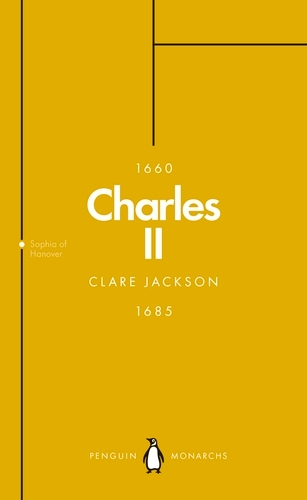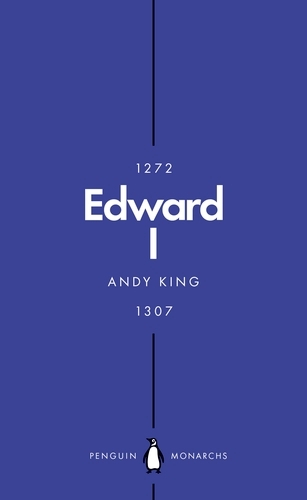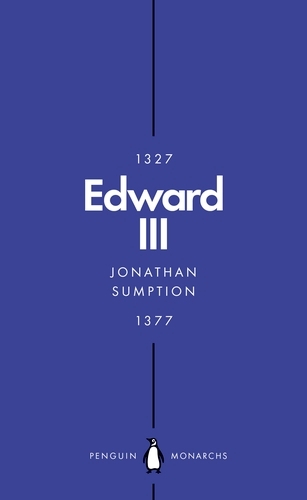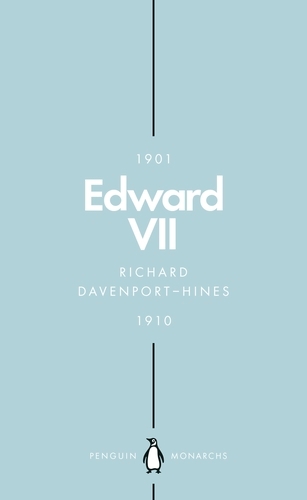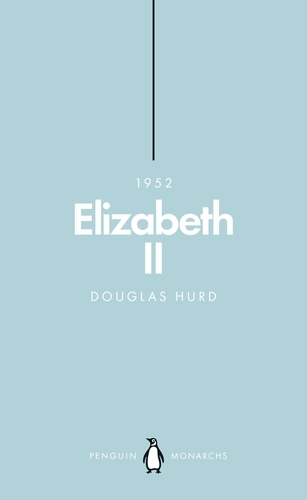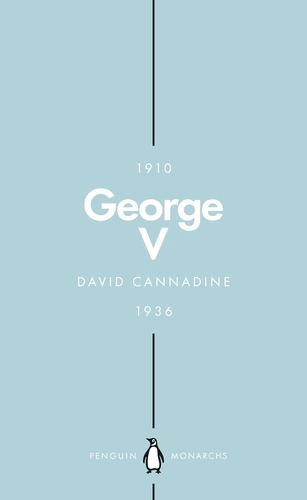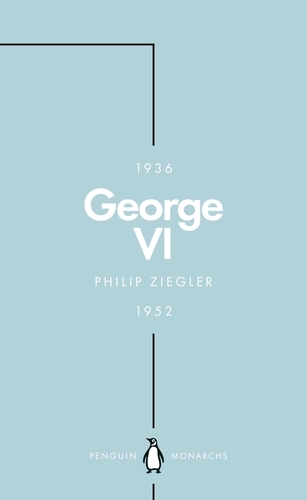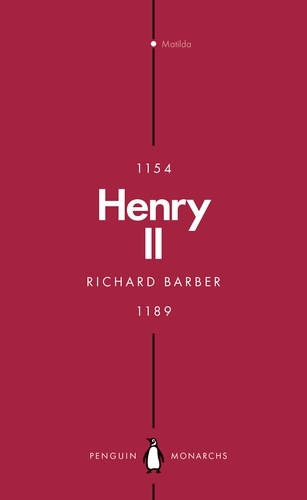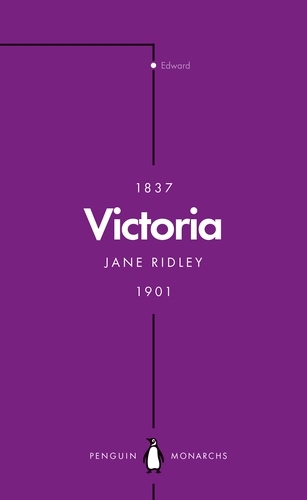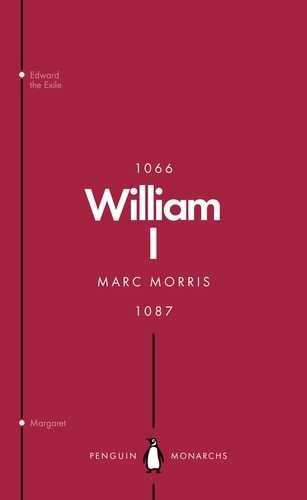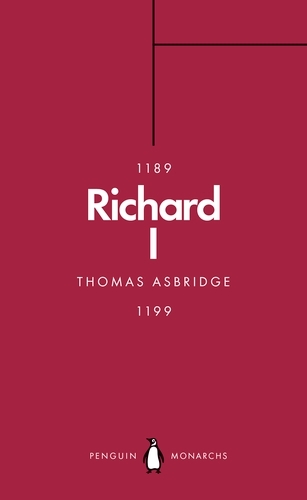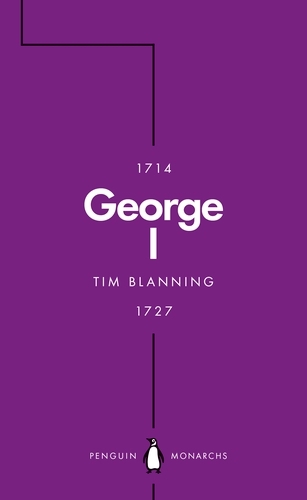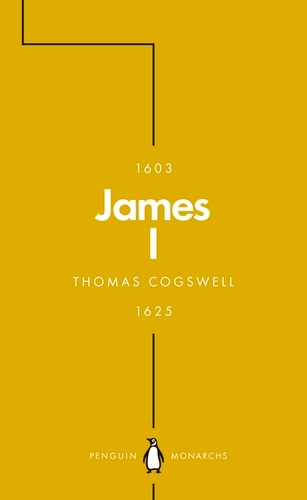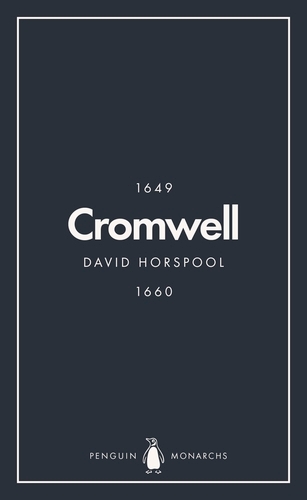Penguin Monarchs
44 books in this series
Charles II (Penguin Monarchs)
Charles II has always been one of the most instantly recognisable British kings - both in his physical appearance, disseminated through endless portraits, prints and pub signs, and in his complicated mix of lasciviousness, cynicism and luxury. His father's execution and his own many years of exile made him a guarded, curious, unusually self-conscious ruler. He lived through some of the most striking events in the national history - from the Civil Wars to the Great Plague, from the Fire of London to the wars with the Dutch.
Clare Jackson's marvellous book takes full advantage of its irrepressible subject.
Clare Jackson's marvellous book takes full advantage of its irrepressible subject.
Edward I (Penguin Monarchs)
Edward I (1272-1307) is one of the most commanding of all English rulers. He fought in southwest France, in Wales, In Scotland and in northern France, he ruled with ruthlessness and confidence, undoing the chaotic failure of his father, Henry III's reign. He reshaped England's legal system and came close to bringing the whole island of Great Britain under his rule. He promoted the idea of himself as the new King Arthur, his Round Table still hanging in Winchester Castle to this day. His greatest monuments are the extraordinary castles - Caernarfon, Beaumaris, Harlech and Conwy - built to ensure his rule of Wales and some of the largest of all medieval buildings.
Andy King's brilliant short biography brings to life a strange, complex man whose triumphs raise all kinds of questions about the nature of kingship - how could someone who established so many key elements in England's unique legal and parliamentary system also have been such a harsh, militarily brutal warrior?
Andy King's brilliant short biography brings to life a strange, complex man whose triumphs raise all kinds of questions about the nature of kingship - how could someone who established so many key elements in England's unique legal and parliamentary system also have been such a harsh, militarily brutal warrior?
Edward III (Penguin Monarchs)
Edward III ruled England for fifty years. He was a paragon of kingship in the eyes of his contemporaries, the perfect king in those of later generations. Venerated as the victor of Sluys and Crécy and the founder of the Order of the Garter, he was regarded with awe even by his enemies. But he lived too long, and was ultimately condemned to see thirty years of conquests reversed in less than five. In this gripping new account of Edward III's rise and fall, Jonathan Sumption introduces us to a fêted king who ended his life a heroic failure.
Jonathan Sumption is a former history fellow of Magdalen College Oxford. He is the author of Pilgrimage and The Albigensian Crusade, as well as the first four volumes in his celebrated history of the Hundred Years War, Trial by Battle, Trial by Fire, Divided Houses and Cursed Kings. He was awarded the 2009 Wolfson History Prize for Divided Houses.
Jonathan Sumption is a former history fellow of Magdalen College Oxford. He is the author of Pilgrimage and The Albigensian Crusade, as well as the first four volumes in his celebrated history of the Hundred Years War, Trial by Battle, Trial by Fire, Divided Houses and Cursed Kings. He was awarded the 2009 Wolfson History Prize for Divided Houses.
Edward VII (Penguin Monarchs)
Like his mother Queen Victoria, Edward VII defined an era. Both reflected the personalities of their central figures: hers grand, imperial and pretty stiff; his no less grand, but much more relaxed and enjoyable. This book conveys Edward's distinct personality and significant influences. To the despair of his parents, he rebelled as a young man, conducting many affairs and living a life of pleasure. But as king he made a distinct contribution to European diplomacy and - which is little known - to London, laying out the Mall and Admiralty Arch.
Richard Davenport-Hines's book is as enjoyable as its subject and the age he made.
Richard Davenport-Hines's book is as enjoyable as its subject and the age he made.
Edward VIII (Penguin Monarchs)
'After my death', George V said of his eldest son and heir, 'the boy will ruin himself in 12 months'. From the death of his father in 1936 to the constitutional crisis provoked by his proposal to the then-married American socialite Wallis Simpson and his subsequent abdication, Edward VIII reigned for less than year. In choosing the woman he loved over his royal birthright, Edward fulfilled his father's prophecy and instigated the monarchy's most significant upheaval of the twentieth century. Retitled 'Duke of Windsor' and essentially exiled, Edward has remained a controversial figure ever since. Through his correspondence with, amongst other confidants, Winston Churchill, Piers Brendon traces Edward's tumultuous life in this superb, pacey biography.
Elizabeth II (Penguin Monarchs)
Elizabeth II is the longest-serving monarch who ever sat on the English or British throne. Yet her personality and influence remain elusive. This book, by a senior politician who has spent significant periods of time in her company, and is also a distinguished historian, portrays her more credibly than any other yet published.
George V (Penguin Monarchs)
For a man with such conventional tastes and views, George V had a revolutionary impact. Almost despite himself he marked a decisive break with his flamboyant predecessor Edward VII, inventing the modern monarchy, with its emphasis on frequent public appearances, family values and duty. George V was an effective war-leader and inventor of 'the House of Windsor'. In an era of ever greater media coverage - frequently filmed and initiating the British Empire Christmas broadcast - George became for 25 years a universally recognised figure. He was also the only British monarch to take his role as Emperor of India seriously. While his great rivals (Tsar Nicolas and Kaiser Wilhelm) ended their reigns in catastrophe, he plodded on.
David Cannadine's sparkling account of his reign could not be more enjoyable, a masterclass in how to write about Monarchy, that central - if peculiar - pillar of British life.
David Cannadine's sparkling account of his reign could not be more enjoyable, a masterclass in how to write about Monarchy, that central - if peculiar - pillar of British life.
George VI (Penguin Monarchs)
If Ethelred was notoriously 'Unready' and Alfred 'Great', King George VI should bear the designation of 'George the Dutiful'. Throughout his life he dedicated himself to the pursuit of what he thought he ought to be doing rather than what he wanted to do. Inarticulate and loathing any sort of public appearances, he accepted that it was his destiny to figure regularly and conspicuously in the public eye, gritted his teeth, largely conquered his crippling stammer and got on with it. He was not born to be king, but he made an admirable one, and was the figurehead of the nation at the time of its greatest trial, during the Second World War. This is a sparklingly brilliant and enjoyable book about him.
Henry II (Penguin Monarchs)
Henry II (1154-89) through a series of astonishing dynastic coups became the ruler of an enormous European empire. One of the most dynamic, restless and clever men ever to rule England, he was brought down both by his catastrophic relationship with his archbishop Thomas Becket and his debilitating arguments with his sons, most importantly the future Richard I and King John. His empire may have ultimately collapsed, but in Richard Barber's vivid and sympathetic account the reader can see why Henry II left such a compelling impression on his contemporaries.
Victoria (Penguin Monarchs)
Queen Victoria inherited the throne at 18 and went on to become the longest-reigning female monarch in history, in a time of intense industrial, cultural, political, scientific and military change within the United Kingdom and great imperial expansion outside of it (she was made Empress of India in 1876). Overturning the established picture of the dour old lady, this is a fresh and engaging portrait from one of our most talented royal biographers.
William I (Penguin Monarchs)
On Christmas Day 1066, William duke of Normandy was crowned in Westminster, the first Norman king of England. The ceremony was a disaster: Norman soldiers, mishearing English shouts of acclamation as treachery, torched and looted the surrounding buildings. At the very moment God had been called upon to bless William's rule, all around were scenes of chaos and destruction. To chroniclers who wrote with the benefit of hindsight, it was an omen of the catastrophes to come. During the reign of William the Conqueror, England experienced greater and more seismic change than at any point before or since. The old ruling elites of England were swept away, while rebellion was met with overwhelming force, laying waste huge swathes of the country. Society was reordered, hundreds of castles constructed across the kingdom and every major abbey and cathedral torn down and rebuilt. The map of England itself was redrawn, giving greater power than ever before to the king. Towards the end of his reign, when William attempted to assess the scale of this transformation by launching a great survey, his subjects compared it to the last judgement of God: the Domesday Book.
Richard I (Penguin Monarchs)
Richard I's reign is both controversial and seemingly contradictory. One of England's most famous medieval monarchs and a potent symbol of national identity, he barely spent six months on English soil during a ten-year reign and spoke French as his first language. Contemporaries dubbed him the 'Lionheart', reflecting a carefully cultivated reputation for bravery, prowess and knightly virtue, but this supposed paragon of chivalry butchered close to 3,000 prisoners in cold blood on a single day. And, though revered as Christian Europe's greatest crusader, his grand campaign to the Holy Land failed to recover the city of Jerusalem from Islam.
Seeking to reconcile this conflicting evidence, Thomas Asbridge's incisive reappraisal of Richard I's career questions whether the Lionheart really did neglect his kingdom, considers why he devoted himself to the cause of holy war and asks how the memory of his life came to be interwoven with myth. Richard emerges as a formidable warrior-king, possessed of martial genius and a cultured intellect, yet burdened by the legacy of his dysfunctional dynasty and obsessed with the pursuit of honour and renown.
Seeking to reconcile this conflicting evidence, Thomas Asbridge's incisive reappraisal of Richard I's career questions whether the Lionheart really did neglect his kingdom, considers why he devoted himself to the cause of holy war and asks how the memory of his life came to be interwoven with myth. Richard emerges as a formidable warrior-king, possessed of martial genius and a cultured intellect, yet burdened by the legacy of his dysfunctional dynasty and obsessed with the pursuit of honour and renown.
Cnut (Penguin Monarchs)
Cnut, or Canute, was King of England for nearly 20 years, dying in Dorset in 1035. A formidable figure, Cnut is one of the great 'what ifs' in English history. The culmination of a long period of Viking attacks and settlement across England, Cnut's reign could have permanently shifted 11th century England's orbit to Scandinavia. Stretching his authority across the North Sea to become king of Denmark and Norway, and with close links to Ireland and an overlordship of Scotland, Cnut created a Viking Empire at least as plausible as the Anglo-Norman Empire that would emerge in 1066.
Ryan Lavelle's book explores this fascinating and powerful man. He has popularly come down to us for the story of Canute and the waves - but he was a nation and empire builder on the grandest scale and his reign is a sort of masterclass in the contingent, wayward nature of history.
Ryan Lavelle's book explores this fascinating and powerful man. He has popularly come down to us for the story of Canute and the waves - but he was a nation and empire builder on the grandest scale and his reign is a sort of masterclass in the contingent, wayward nature of history.
George I (Penguin Monarchs)
George I was not the most charismatic of the Hanoverian monarchs to have reigned in England but he was probably the most important. He was certainly the luckiest. Born the youngest son of a landless German duke, he was taken by repeated strokes of good fortune to become, first the ruler of a major state in the Holy Roman Empire of the German Nation and then the sovereign of three kingdoms (England, Ireland and Scotland). In these new dominions he presided over the transition from the political turmoil of the seventeenth century to the calm stability of the next.
Fifty-four years old when he arrived in London in 1714, he was a battle-hardened veteran who had fought with distinction against the Turks in the East and the French in the West. Now in charge of a major European power, he put his long experience and deep knowledge of international affairs to good use in promoting the interests of both Hanover and Great Britain. When he died, his legacy was order and prosperity at home and power and prestige abroad. Disagreeable he may have been, especially in his brutal treatment of his family, but he was also tough, determined and effective.
Tim Blanning's incisive short biography gives full attention to George's career as a German prince and shows how it both helped and hindered his new role as the first Hanoverian King of England.
Fifty-four years old when he arrived in London in 1714, he was a battle-hardened veteran who had fought with distinction against the Turks in the East and the French in the West. Now in charge of a major European power, he put his long experience and deep knowledge of international affairs to good use in promoting the interests of both Hanover and Great Britain. When he died, his legacy was order and prosperity at home and power and prestige abroad. Disagreeable he may have been, especially in his brutal treatment of his family, but he was also tough, determined and effective.
Tim Blanning's incisive short biography gives full attention to George's career as a German prince and shows how it both helped and hindered his new role as the first Hanoverian King of England.
James I (Penguin Monarchs)
James's reign marked one of the very rare major breaks in England's monarchy. Already James VI of Scotland and a highly experienced ruler who had established his authority over the Scottish Kirk, he marched south on Elizabeth I's death to become James I of England and Ireland, uniting the British Isles for the first time and founding the Stuart dynasty which would, with several lurches, reign for over a century. Indeed his descendant still occupies the throne.
A complex, curious man and great survivor, James drastically changed court life in London and presided over such major projects as the Authorized Version of the Bible and the establishment of English settlements in Virginia, Massachusetts, Gujarat and the Caribbean. Although he failed to unite England and Scotland, he insisted that ambassadors acknowledge him as King of Great Britain and that vessels from both countries display a version of the current Union Flag.
He was often accused of being too informal and insufficiently regal - but when his son, Charles I, decided to redress these criticisms in his own reign he was destroyed. How much of the roots of this disaster were to be found in James's reign is one of the many problems dramatized in Thomas Cogswell's brilliant and highly entertaining new book.
A complex, curious man and great survivor, James drastically changed court life in London and presided over such major projects as the Authorized Version of the Bible and the establishment of English settlements in Virginia, Massachusetts, Gujarat and the Caribbean. Although he failed to unite England and Scotland, he insisted that ambassadors acknowledge him as King of Great Britain and that vessels from both countries display a version of the current Union Flag.
He was often accused of being too informal and insufficiently regal - but when his son, Charles I, decided to redress these criticisms in his own reign he was destroyed. How much of the roots of this disaster were to be found in James's reign is one of the many problems dramatized in Thomas Cogswell's brilliant and highly entertaining new book.
Oliver Cromwell (Penguin Monarchs)
Although he styled himself 'His Highness', adopted the court ritual of his royal predecessors, and lived in the former royal palaces of Whitehall and Hampton Court, Oliver Cromwell was not a king - in spite of the best efforts of his supporters to crown him.
Yet, as David Horspool shows in this illuminating new portrait of England's Lord Protector, Cromwell, the Puritan son of Cambridgeshire gentry, wielded such influence that it would be a pretence to say that power really lay with the collective. The years of Cromwell's rise to power, shaped by a decade-long civil war, saw a sustained attempt at the collective government of England; the first attempts at a real Union of Britain; the beginnings of empire; a radically new solution to the idea of a national religion; atrocities in Ireland; and the readmission to England of the Jews, a people officially banned for over three and a half centuries. At the end of it, Oliver Cromwell had emerged as the country's sole ruler: to his enemies, and probably to most of his countrymen, his legacy looked as likely to last as that of the Stuart dynasty he had replaced.
Yet, as David Horspool shows in this illuminating new portrait of England's Lord Protector, Cromwell, the Puritan son of Cambridgeshire gentry, wielded such influence that it would be a pretence to say that power really lay with the collective. The years of Cromwell's rise to power, shaped by a decade-long civil war, saw a sustained attempt at the collective government of England; the first attempts at a real Union of Britain; the beginnings of empire; a radically new solution to the idea of a national religion; atrocities in Ireland; and the readmission to England of the Jews, a people officially banned for over three and a half centuries. At the end of it, Oliver Cromwell had emerged as the country's sole ruler: to his enemies, and probably to most of his countrymen, his legacy looked as likely to last as that of the Stuart dynasty he had replaced.
